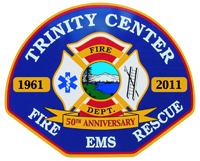About Community Services Districts
What is a CSD?
When a housing area is created, its developer must determine how the community infrastructure – its roads, street lights, drainage systems, common landscaping, and so on – will be maintained. In California, there are a couple of options: a homeowners association or a governmental agency.
In most cases, a homeowners association (“HOA”) is formed. It is staffed by a board elected by its membership and is funded solely by membership dues. The association is responsible for collecting the dues and must find ways to enforce payment in the event of delinquencies. The primary function of an HOA is to enforce the Covenants, Conditions and Restrictions (“CC&Rs”) for the development and in cases of non-compliance, the HOA must resort to private legal action, funded by member dues.
A governmental agency can take over the infrastructure, such as a county government, but that puts the development in the hands of an entity managing a much larger scope, and puts the development at the whim of that governmental agency’s budget process. California’s legislature created the concept of a “community services district” as a legal form of government to handle specific services in a specific area.
A community services district (“CSD”) is very different from an HOA. It is an official governmental agency, authorized by the State of California, and operates like a city government. Its board members are elected by registered voters within the services district boundaries and just as a city council, a CSD can pass and enforce laws, set speed limits and annex land.
A CSD can manage many different services. The specific services to be provided to be provided are to be determined by the Community Services District Board of Directors with the approval of the Local Agency Formation Commission (“LAFCO”). LAFCO is a commission, typically at the county level, that oversees the formation and operation of districts. As with most governmental agencies in California, CSD activities are governed by the Brown Act. This means that CSD proceedings must be open to the public.
Services provided may include, but are not limited to, collection or disposal of storm water; collection or disposal of garbage or other refuse; protection against fire including weed abatement; mosquito abatement; street lighting; police department or other police protection, including restricting access to streets; maintaining libraries; maintaining, opening and surfacing streets; construction and improvement of culverts, gutters, drains, storage ponds and wetlands habitats; conversion of overhead electrical and communications facilities to underground locations; to contract for ambulance services; to provide transportation services; to abate graffiti; and provide for public recreation, including tennis courts, playgrounds, golf courses, swimming pools, or recreation buildings.
Thus, a CSD is much more powerful, and therefore potentially more complex than an HOA. In fact, a CSD can assume the responsibilities of an existing HOA should that association cease to exist.
Reading about CSDs and the laws behind them
State code governing CSD: As of January 1, 2006 the newly revised Community Services District (CSD) law–SB135–took effect. The rewrite of the old 1955 law was done in a collaborative effort by the Senate Local Government Committee. It now provides a viable local government option for communities in unincorporated areas of the state.
How is a CSD funded?
A CSD supports its district’s infrastructure through an annual property tax assessment on each lot within the district, or through some other appropriate funding mechanisms, such as governmental bonds. Taxes are collected by the County, which can place a tax lien against a property and eventually take possession, in the event of delinquency.
The Trinity Center CSD tax revenue is approximately 0.46% of all property tax collected by Trinity County.
The CSD can derive revenue from other sources:
A community services district also has the authority to assess usage fees and, with voter approval, levy additional property taxes. If the voting community desires, the CSD can increase taxes or raise a bond to fund libraries, parks, community centers, etc.
- special augmentation funds from the State
- State park grant funds
- fees received from rental fees of the CSD assets
